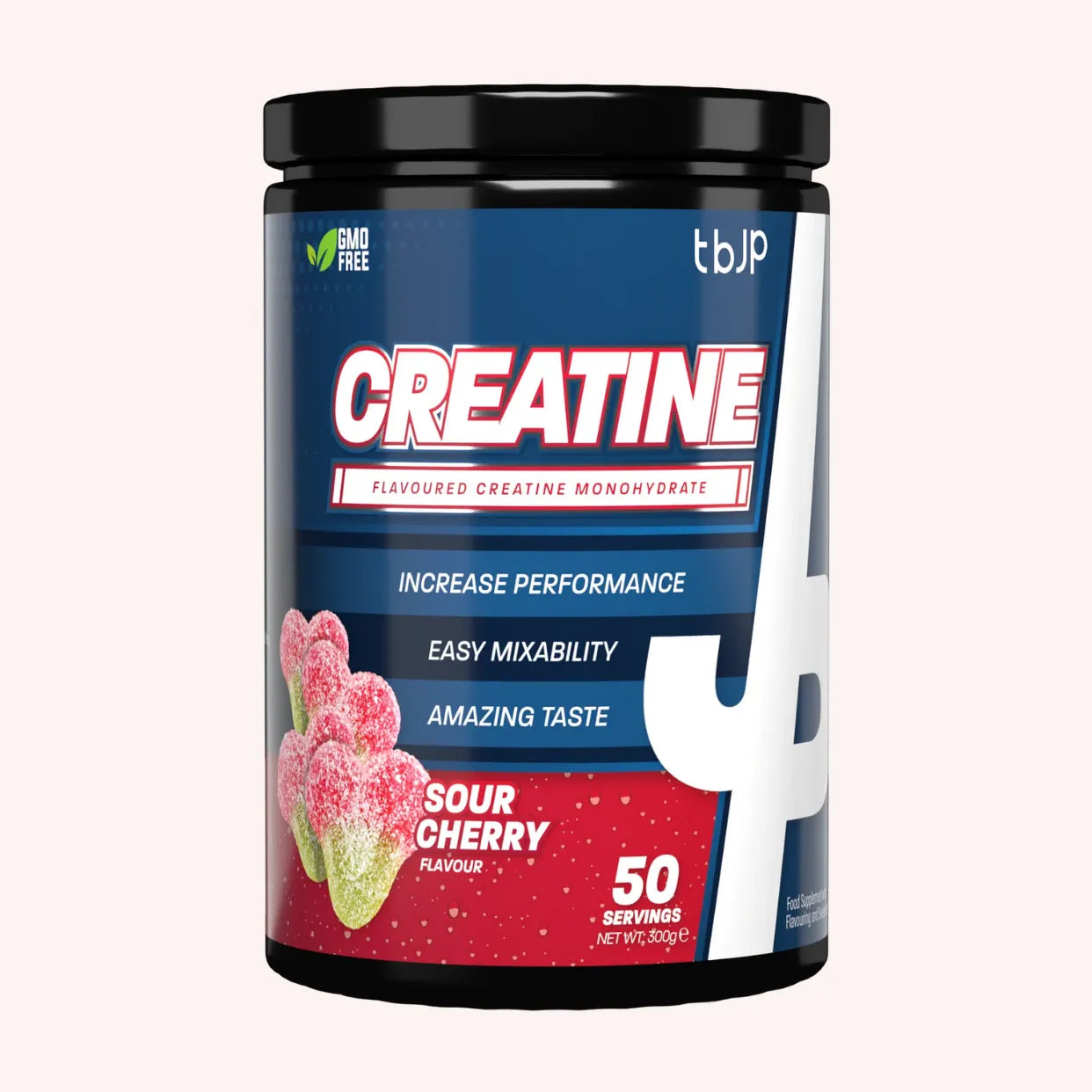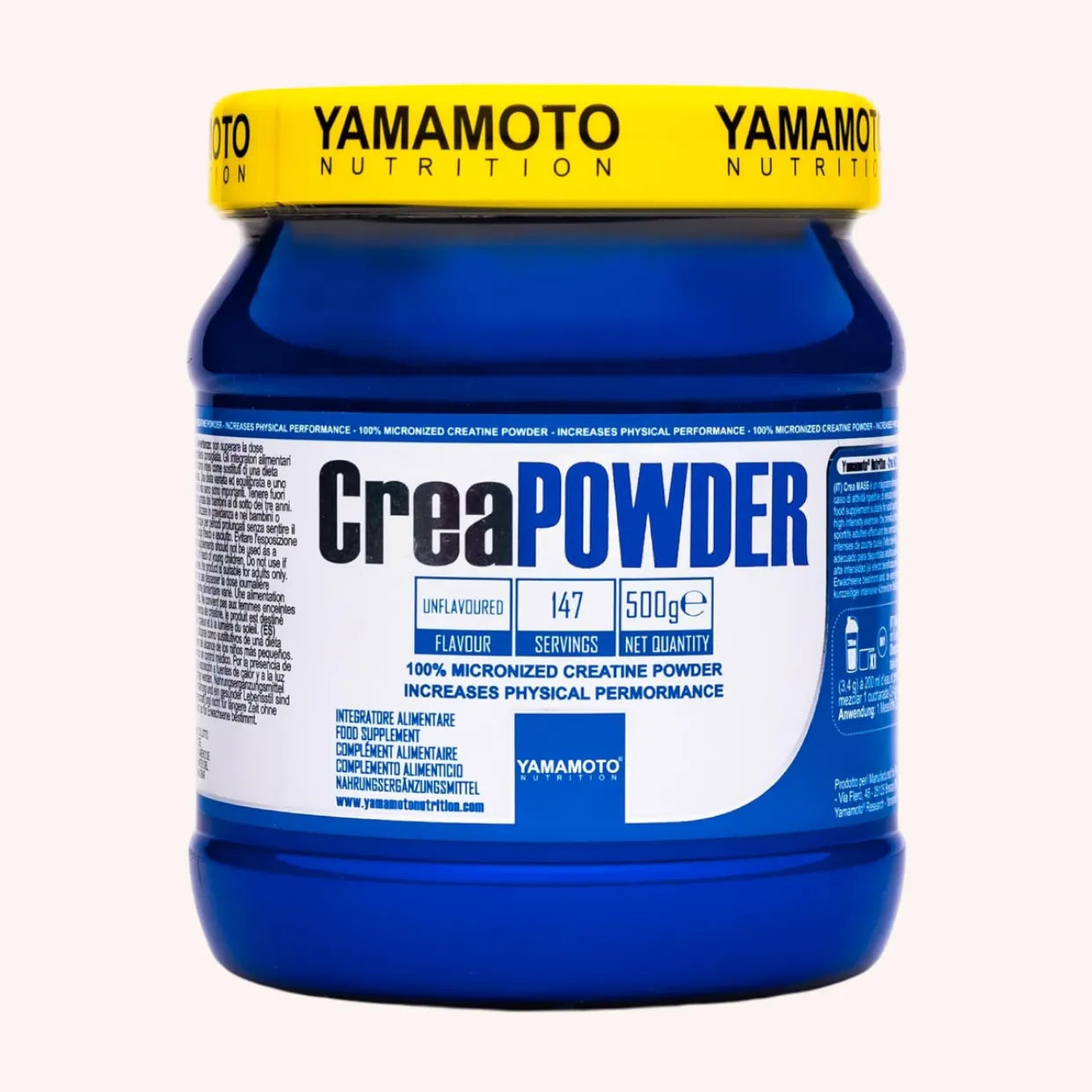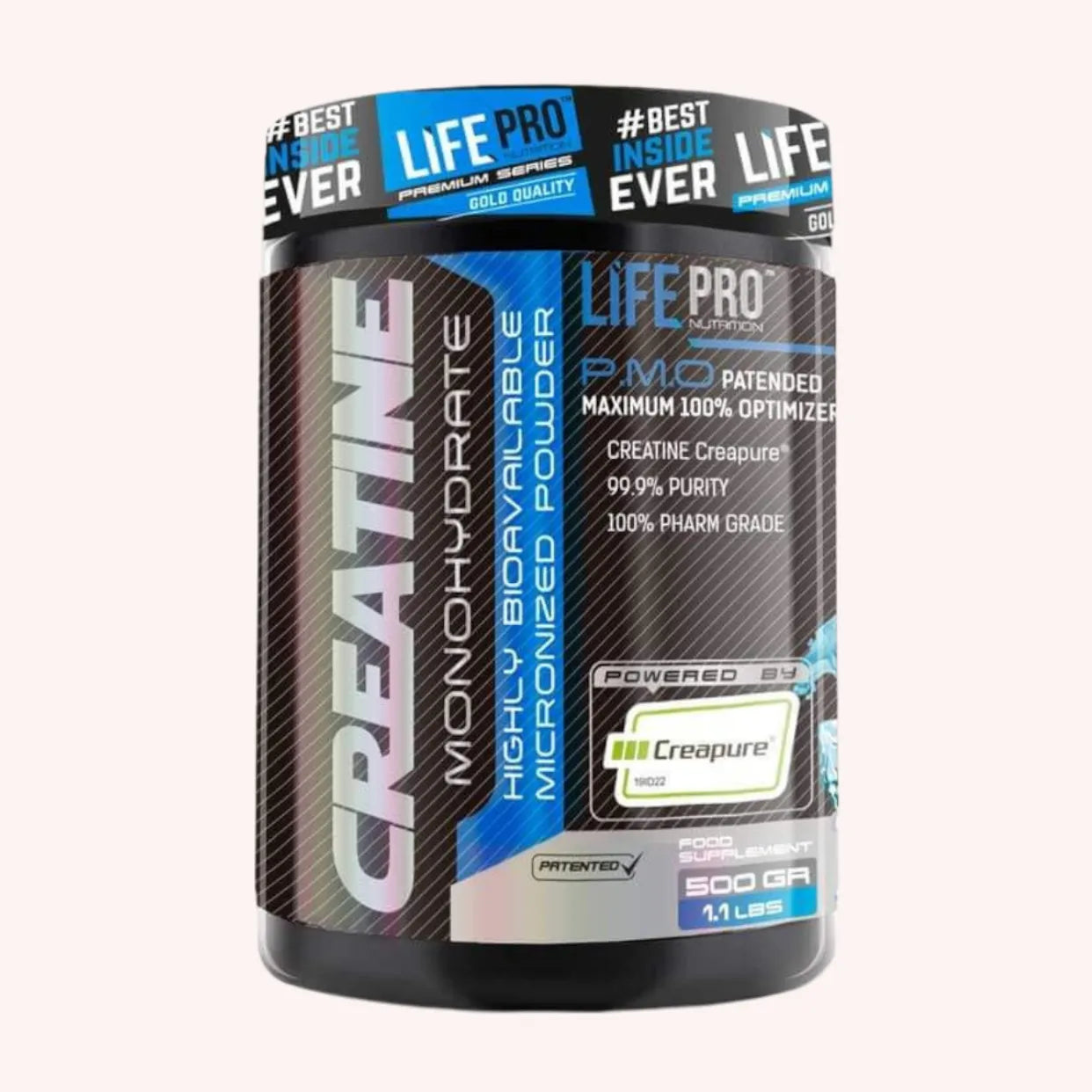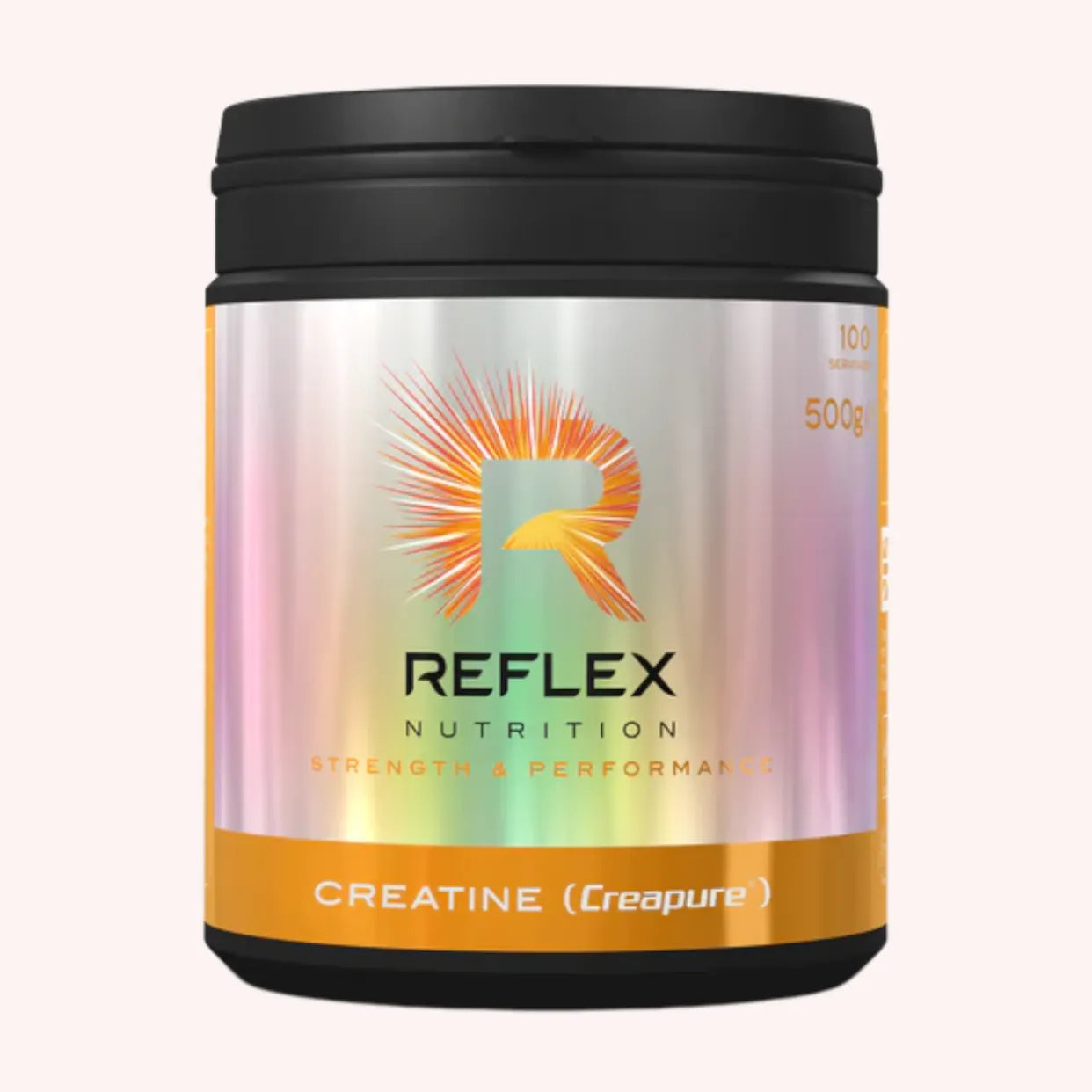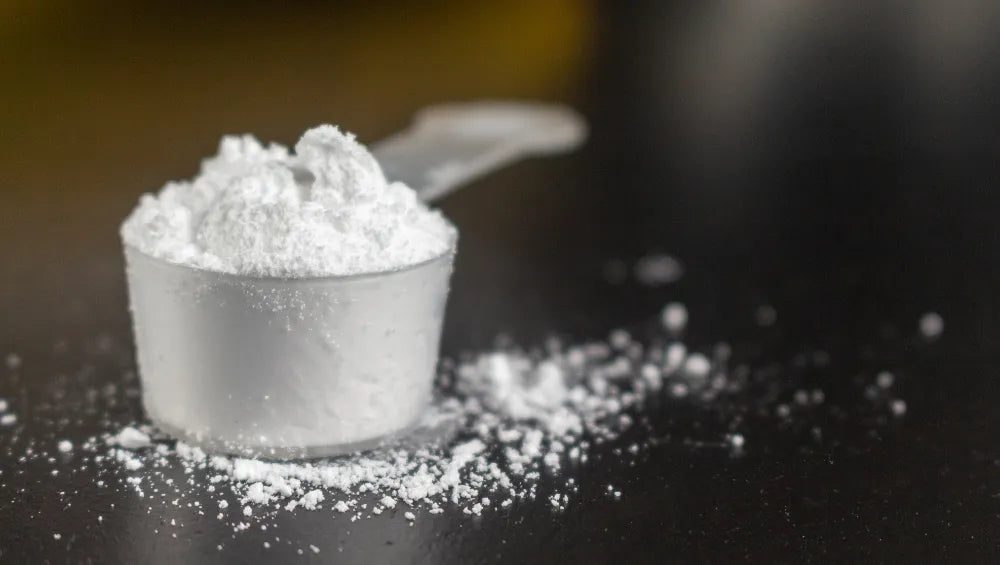Creatine is a popular dietary supplement among athletes and bodybuilding enthusiasts. Although used to enhance physical performance and increase muscle mass, it raises questions about its safety and potential side effects.
Here we will examine the full range of risks associated with creatine .
What is creatine?
Creatine is a naturally occurring substance in the human body, primarily stored in the muscles and brain. It is synthesized from three amino acids: glycine, arginine, and methionine.
In the form of a sports food supplement , it generally comes in the form of creatine monohydrate, the most common and most studied form.
The effect of creatine on your body
Creatine is essential for your energy production at the cellular level. It helps regenerate adenosine triphosphate (ATP), the main energy source used by muscles during short, intense workouts.
By increasing creatine phosphate stores in the muscles, creatine supplements help extend the duration of maximum effort and improve your athletic performance.
Safe consumption of creatine
General use
Numerous studies show that creatine is relatively safe for most individuals, provided the doses are appropriate and the user is in good health.
The International Society of Sports Nutrition states that creatine is well tolerated, even at high doses of 30g/day in healthy adults.
Actions on renal and hepatic function
Concerns about the effects of creatine on kidney and liver function have been widely studied. A review of 19 studies on bodybuilders consuming between 5 and 30g of creatine per day for periods ranging from 5 days to 5 years showed no impairment of kidney function.
However, athletes with kidney disease are advised to consult a healthcare professional before using creatine.
Potential side effects
Side effects associated with creatine are generally minor and temporary. The most common include stomach upset, nausea, and loose stools.
These effects are often related to poor absorption in some people. Therefore, you need to know when to take creatine . To minimize these effects, it is recommended to take creatine with meals and to hydrate properly.
Water retention
Creatine can cause intracellular water retention, which can increase body weight.
While this is beneficial for hydration and muscle performance, it can be seen as a disadvantage in weight class sports.
Precautions to take
Quality and purity of supplements
You need to choose high-quality creatine supplements to avoid contamination with toxic substances like heavy metals.
Certified and tested products, such as those bearing the AFNOR NF 17444 standard, are recommended to guarantee purity and safety.
Interactions with other drugs
Creatine may interact with certain medications, including blood thinners, increasing the risk of bleeding.
It is essential to consult a healthcare professional if you are taking medication or have a pre-existing medical condition.
Contraindications
Some people should avoid creatine or use it with caution:
- People with kidney problems: Medical consultation is necessary.
- Pregnant or breastfeeding women: The safety of creatine during pregnancy and breastfeeding is not well studied.
- People with liver disease or diabetes: These conditions require special attention and medical advice.
Myth or Fact: Is Creatine a Doping Product?
It's important to clarify that creatine is not considered a doping agent. It occurs naturally in the body, and its use as a supplement is legal. Official anti-doping organizations do not recognize it as a prohibited substance.
However, it is important to choose pure creatine products to avoid contamination with doping substances.
Recommended doses
Commonly recommended doses of creatine typically range from 3 to 5 grams per day. Some people practice a "loading phase" with higher doses (20g/day) for a week, followed by a maintenance dose.
However, high doses are not necessary to achieve beneficial effects and may increase the risk of adverse effects.
Potential side effects
Digestive disorders
Some creatine users report digestive disturbances such as stomach upset, nausea, or diarrhea.
These effects are usually temporary and can be minimized by taking creatine with meals and hydrating properly.
Muscle cramps
Muscle cramps may occur, although this effect is rare and often linked to dehydration.
It is therefore crucial to maintain adequate hydration when taking creatine.
Water retention
Water retention is a common side effect of creatine. While it can increase muscle volume, it can also lead to temporary weight gain.
Athletes in weight-class sports should be aware of this and adjust their supplementation accordingly.
Creatine and Kidney Problems
It has long been suggested that creatine could cause kidney problems. However, extensive studies show that creatine has no adverse effects on kidney function in healthy individuals.
A study of bodybuilders consuming high doses of creatine for extended periods showed no impairment of kidney function.
Contraindications and precautions
Kidney problems
People with kidney problems should avoid creatine or use it under strict medical supervision.
Although creatine does not appear to affect kidney function in healthy individuals, it may worsen existing kidney conditions.
Pregnancy and breastfeeding
The safety of creatine during pregnancy and breastfeeding has not been adequately studied. As a precaution, pregnant or breastfeeding women are advised to avoid creatine.
Diabetes and liver disease
People with diabetes or liver disease should consult a healthcare professional before taking creatine, as it may interact with their medical conditions.
Creatine is an effective and safe dietary supplement for improving physical performance, increasing muscle mass, and speeding up recovery. While minor side effects may occur, they are generally temporary and can be minimized by following the recommended doses and choosing high-quality products.
As with any supplement, it is important to consult a healthcare professional before starting a supplement, especially if you have pre-existing medical conditions. By following these guidelines, you can enjoy the many benefits of creatine while minimizing potential risks.
Sources:
- Antonio J, Candow DG, Forbes SC, Gualano B, Jagim AR, Kreider RB, Rawson ES, Smith-Ryan AE, VanDusseldorp TA, Willoughby DS, Ziegenfuss TN. (2021). Common questions and misconceptions about creatine supplementation: what does the scientific evidence really show? J Int Soc Sports Nutr. , 18(1):13. doi:10.1186/s12970-021-00412-w. PMID: 33557850. Free PMC article. Review. : https://pmc.ncbi.nlm.nih.gov/articles/PMC7871530/
- Wang CC, Fang CC, Lee YH, Yang MT, Chan KH. (2018). Effects of 4-Week Creatine Supplementation Combined with Complex Training on Muscle Damage and Sport Performance. Nutrients , 10(11):1640. doi:10.3390/nu10111640. PMID: 30400221. Free PMC article. Clinical Trial. : https://pmc.ncbi.nlm.nih.gov/articles/PMC6267111/
- Wax B, Kerksick CM, Jagim AR, Mayo JJ, Lyons BC, Kreider RB. (2021). Creatine for Exercise and Sports Performance, with Recovery Considerations for Healthy Populations. Nutrients , 13(6):1915. doi:10.3390/nu13061915. PMID: 34199588. Free PMC article. Review. : https://pmc.ncbi.nlm.nih.gov/articles/PMC8233702/
- Vega J, Huidobro E JP. (2019). Effects of creatine supplementation on renal function. Rev Med Chil. , 147(5):628-633. doi:10.4067/S0034-98872019000500628. PMID: 31859895. Free article. Review. : https://pubmed.ncbi.nlm.nih.gov/31859895/
- Wyss M, Kaddurah-Daouk R. (2000). Creatine and creatinine metabolism. Physiol Rev. , 80(3):1107-213. doi: 10.1152/physrev.2000.80.3.1107. PMID: 10893433. Free article. Review. : https://pubmed.ncbi.nlm.nih.gov/10893433/
- Jiaming Y, Rahimi MH. (2021). Creatine supplementation effect on recovery following exercise-induced muscle damage: A systematic review and meta-analysis of randomized controlled trials. J Food Biochem. , 45(10). doi:10.1111/jfbc.13916. Epub 2021 Sep 2. PMID: 34472118. Review. : https://pubmed.ncbi.nlm.nih.gov/34472118/





